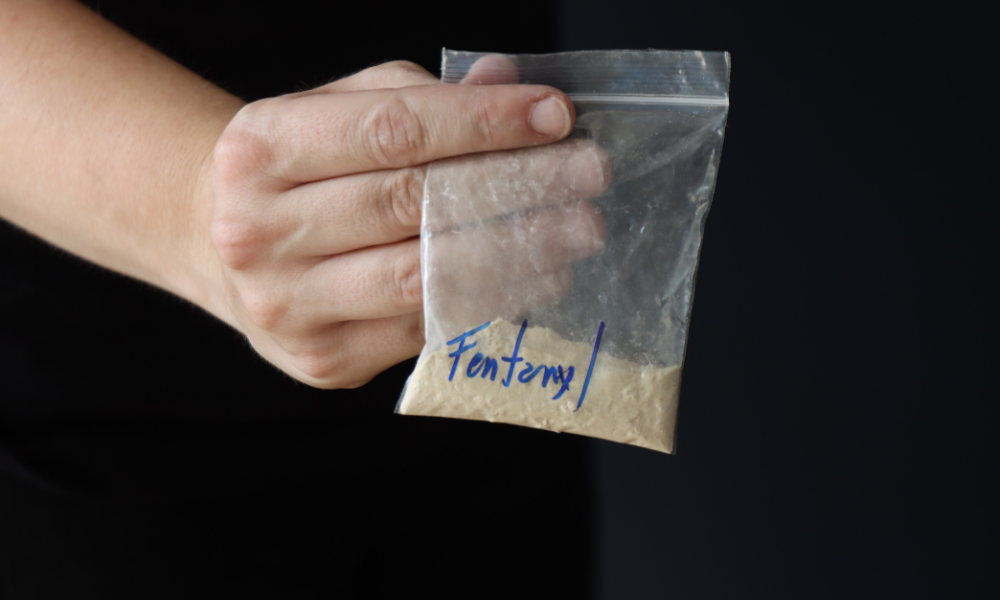'We'll be working with our partners to ensure providers can take fast action to protect staff and tenants in supportive housing'

Workers at several Vancouver supportive housing facilities are being exposed to significant levels of airborne fentanyl at work, according to a recent report.
Staff could not avoid “substantial exposure” to fentanyl smoke, according to a report from The Canadian Press (CP).
That is the case even when workers remain in main offices and avoid hallways or tenants’ rooms, according to an investigation by Sauve Safety Services for BC Housing.
All three Vancouver facilities tested—Osborn on West Hastings Street, Al Mitchell Place on Alexander Street, and Hotel Maple on East Hastings—had airborne fentanyl levels in office spaces that exceeded WorkSafeBC’s regulatory limits.
At the Osborn facility, occupational exposures over a 12-hour shift “grossly exceeded applicable regulatory limits,” the report said. This pattern was observed across all work activities, including time spent in the main office, kitchen, shelter areas, and on the shelter floor. The report also noted that none of the mental health workers were seen wearing respiratory protection during the assessment, according to CP.
In Victoria, some of the 11 facilities tested had main offices that provided “protective environments” or had fentanyl levels below regulatory limits, but others exceeded those limits and posed “significant health risks” for staff.
The main risk from fentanyl smoke is “breakdown products” that result when the substance is burned, which can be directly noxious or toxic to a person’s airway surfaces, Dr. Ryan Marino, a medical toxicologist with University Hospitals in Cleveland, Ohio, said, according to the report.
“It’s actually very similar to smog pollution and can give people pretty significant irritation, coughing,” Marino said. “(It) could exacerbate asthma symptoms, that kind of thing. And so that is a very real concern, I would say.”
He said, however, that stakeholders should not overreact.
“It would take a lot of physical powder to be in the air for someone to inhale a significant amount,” Marino said in the CP report.
“For someone who’s not using drugs, not ingesting anything in any way, the risk of a second-hand exposure, toxicity, overdose, whatever you want to call it, from fentanyl is pretty close to zero.”
Opioid epidemic in Canada
Canada is dealing with a drug overdose crisis.
In 2024, the federal government recorded 7,146 apparent opioid toxicity deaths, equivalent to 20 deaths per day, according to data from Ottawa.
Of all apparent opioid toxicity deaths in 2024, 74 per cent involved fentanyl. This percentage has increased by 42 per cent since 2016 when national surveillance began but appears to have stabilized in recent years.
Since 2016, opioid-related harms have led to:
- over 52,544 deaths
- over 48,108 hospitalizations
- over 198,811 emergency department visits
- over 244,927 emergency medical services responses to suspected overdoses
‘Fast action to protect staff’
The recent development has prompted the provincial government to form a working group to address safety issues, including second-hand fentanyl exposure, CP reported, in the article posted in CTV News.
The B.C. Ministry of Housing and Municipal Affairs stated it is taking concerns about worker exposure seriously. “We’ll be working with our partners to ensure providers can take fast action to protect staff and tenants in supportive housing,” the ministry said in a statement quoted by CP. The ministry added that immediate steps are being taken to mitigate risks identified by the exposure assessments and air quality testing.
The province is working with the BC Centre for Disease Control, WorkSafeBC, and BC Housing to develop new guidance for reducing exposure at supportive housing facilities. “We expect to have more information from WorkSafeBC and the BCCDC about actions we can take to continue to keep people safe,” the ministry said in a statement to CP.




